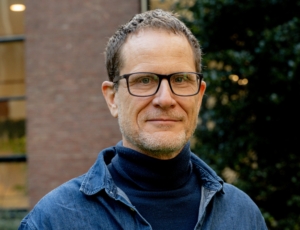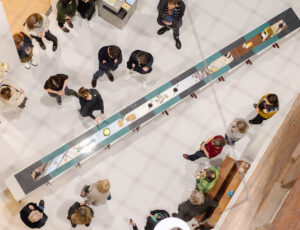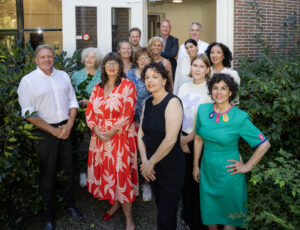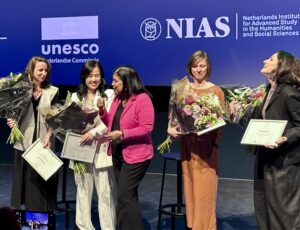Hans Clevers is one of the most acclaimed scientists in the Netherlands. Earlier this month, the Academy announced that he was to receive the prestigious international Heineken Prize for Medicine. Clevers will serve four years as the President of the Academy. To avoid any conflict of interest, he will resign as Director of the Hubrecht Institute as of 1 June and be employed by the UMCU. The Hubrecht Institute is affiliated with the UMCU, allowing Hans Clevers to continue his research work.
“I am a researcher in my heart and soul,” says Hans Clevers about his new position. “The position of Academy President is the best place in the Netherlands from which to influence the relationship between science and society.”
The Academy’s current President, Robbert Dijkgraaf, announced in November 2011 that he would be leaving the Royal Academy to take up a position at the Institute for Advanced Study in Princeton, USA. “Hans Clevers is one of the most celebrated and multifaceted scientists in the Netherlands,” says Dijkgraaf about his successor. “He knows better than anyone how important fundamental research is for society and the economy, based on his own experience. I’m proud that this stellar international researcher will be at the Academy’s helm for the next four years.”
The Academy selection committee was chaired by Pearl Dykstra. “Hans Clevers is an animated, engaged, inspiring scientist who is one of the global leaders in his field,” says Dykstra. “We are delighted that a man with his passion for research, his excellent scientific reputation, and his considerable experience in communicating research results to the public has agreed to be the Academy’s new standard bearer.”
About Hans Clevers
Hans Clevers heads the WNT Signaling and Cancer research group at the Hubrecht Institute. Clevers saw many similarities between normal self-renewal of intestinal tissue and the formation of intestinal tumours. A better understanding of these similarities is vital to the quest for new cancer treatment methods. Clevers described the molecular signalling pathways that are disrupted by cancer and discovered a protein that is specific to stem cells in the intestines. He then succeeded in cultivating “miniature intestines” from individual stem cells. These were the first steps on the road to regenerative medicine, in this case the regeneration of intestinal tissue. Clevers has taken out some dozen patents and co-founded such biotech companies as Crucell, Hybrigenics and Agamyxis. Until recently, he was also a research consultant for investment firms LSP and Aglaia. His experience in this area makes him an important source of expertise on the subject of knowledge valorisation, a key issue for the Academy institutes.
Hans Clevers studied medicine and biochemistry at Utrecht University and obtained his PhD there in 1985. He did his post-doctoral work at Harvard University. In 1991, Clevers became Professor of Immunology at University Medical Centre Utrecht. In 2002, he accepted an appointment as the Director of the Hubrecht Institute and Professor of Molecular Genetics at the UMCU. Clevers is the recipient of many awards for his research, including the Spinoza Award (2001), the Louis-Jeantet Prize (2004), the Josephine Nefkens Prize for Cancer Research and the Meyenburg Cancer Research Award (both in 2008), the Kolff Prize, the Ernst Jung Medical Award and the Léopold Griffuel Prize (all three in 2011). He has been a member of the Royal Academy since 2000.
About the Hubrecht Institute
The Hubrecht Institute for Developmental Biology and Stem Cell Research focuses on animal developmental biology, with special emphasis on stem cells. In addition to fundamental research, the Institute carries out strategic biomedical and genome research. Its research programme is unique in the Netherlands and elsewhere because it covers the full spectrum of animal development biology, from fertilisation to the adult organism. The high citation impact factor of its scientific publications makes it one of the best-performing research institutes in the Netherlands. Indeed, in 2010 it was at the top of the rankings (source: Nederlands Observatorium van Wetenschap en Technologie).
About the Academy
The Royal Netherlands Academy of Arts and Sciences (KNAW) is the forum, conscience and voice of science and scholarship in the Netherlands. It derives its authority from the quality of its members. As an independent organisation, the Academy safeguards the quality and interests of science and scholarship and advises the Dutch government. It is also responsible for seventeen internationally renowned institutes, NIAS being one of them, whose research and collections put them in the vanguard of Dutch science and scholarship.



